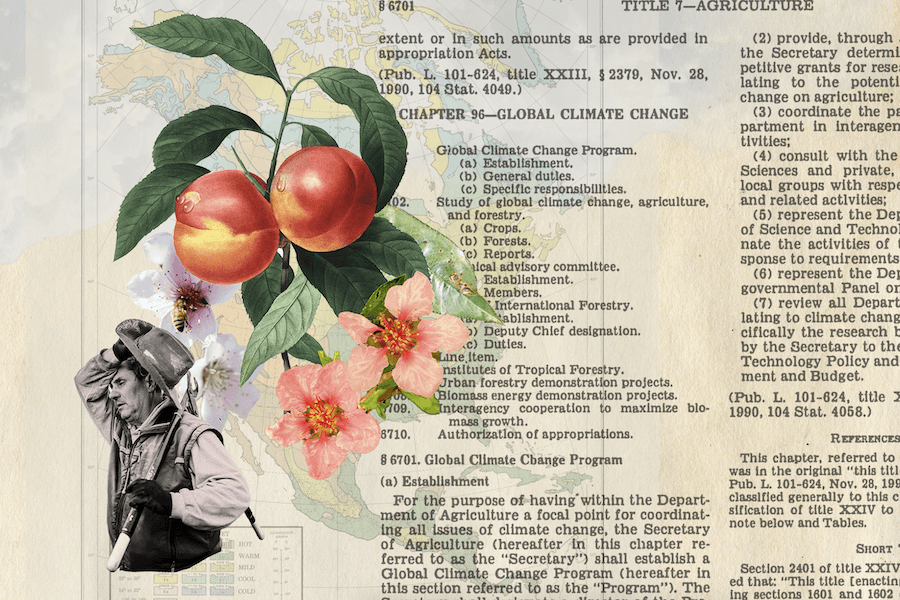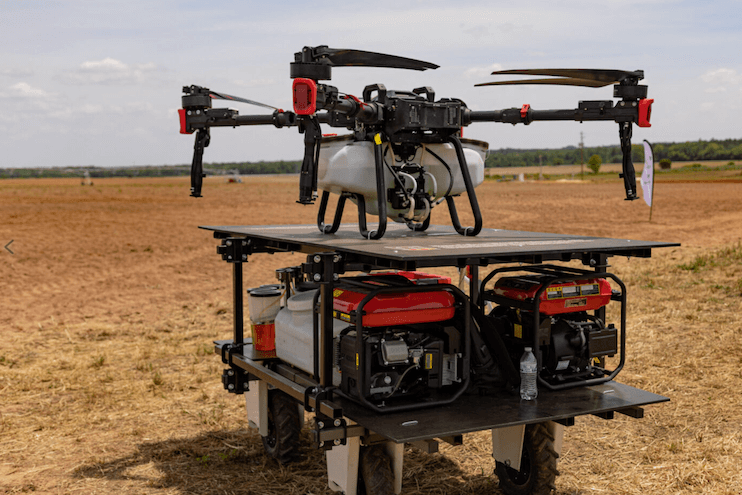August in Georgia was cooler than average across the state, but rainfall varied considerably from northwest to southeast. Generally the driest area was the metro Atlanta area, and the wettest areas stretched from south of Augusta and east towards the Georgia coast.
Drought conditions in Georgia improved slightly in August, particularly in the south where rainfall was greatest. An area of exceptionally dry conditions is still stretched across central Georgia where stream flows and long-term precipitation deficits are still well below normal. Farmers in the wettest areas noticed an increase in fungal diseases and some difficulty getting into their fields. Farmers in other parts of the state welcomed the beneficial rains.
Temperature
In Atlanta the monthly average temperature was 79 degrees Fahrenheit (0.4 degrees below normal). Average temperatures across the state varied from about 77 degrees to around 81 degrees with Athens averaging 77.8 degrees (1.8 degrees below normal); Columbus averaging 80.6 degrees (1.3 below normal); Macon averaging 79.5 degrees (1.4 below normal); Savannah averaging 80.6 degrees (0.9 below normal); Brunswick averaging 81.2 degrees (0.6 below normal), Alma averaging 80.7 degrees (0.6 below normal) and Augusta averaging 78.8 degrees (1.7 below normal).
Only one temperature record was set in August: Athens reported a record low temperature of 60 degrees on August 12, breaking the previous record of 61 degrees set in 1967.
Precipitation
Rainfall in August was primarily affected by the passage of tropical storms and the development of thunderstorm clusters in areas of good soil moisture.
The highest monthly total precipitation from National Weather Service reporting stations was 12.28 inches in Augusta, which was about 7.98 inches above normal. The lowest was in Columbus with 2.3 inches of rain, about 1.47 inches below normal.
Savannah received 7.75 inches (1.19 inches above normal); Atlanta had 3.89 inches (.01 below normal), Alma had 6.20 inches (.79 above normal); Athens had 3.23 inches (.30 below normal); Macon had 3.79 inches (.31 below normal); and Brunswick had 6.41 inches (.14 above normal).
Augusta had the second wettest August in the 142 years that the city has kept records, coming close to the record 12.53 inches that was observed in 1915. Augusta also set daily rainfall records with 4.68 inches on Aug. 11, surpassing the 1915 record of 3.02 inches, and with 1.48 inches on Aug. 21, exceeding the old record of 0.8 inches set in 1934.
The highest single-day rainfall reported by Community Collaborative Rain, Snow and Hail Network stations was in excess of 11.30 inches of rain observed 5 miles southeast of Tifton, where a rain gauge overflowed in the tremendous rainstorm on August 8. This station also had the highest monthly rainfall total of 17.32 inches. Other observers in eastern Tift County reported 10.8 inches and 9.65 inches of rain in the same August 8 storm. Other high monthly rainfall totals included an observer south of Guyton with 17.21 inches for the month and 16.16 inches from another Tifton observer.
The heavy rain in Tifton fell overnight, beginning around 2:30 a.m. on the morning of Aug. 8 and continued for almost four hours, according to the National Weather Service. Officials evacuated a number of homes and two hotels. Several roads had to be closed due to standing water, damage to culverts and compromised road surfaces.
Severe weather
Coastal areas also benefited from a band of convective rain generated by Hurricane Isaac late in the month. However, other areas of the state received only moderate rain amounts from the storm, which made landfall farther west in Louisiana on Aug. 28. Severe weather was reported on 16 out of 31 days in August. The reports were mainly due to wind damage, although hail was also reported in a few locations. Lightning caused house fires, scattered power outages and downed trees during a number of these August storms.
Eight people were taken to the hospital after lightening hit one house on Aug. 2 in Fayette County. A man washing windows on the roof of the Marriott Marquis in downtown Atlanta was also hit by lightning on August 9.






